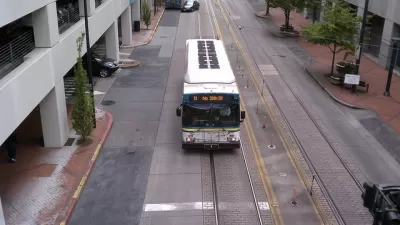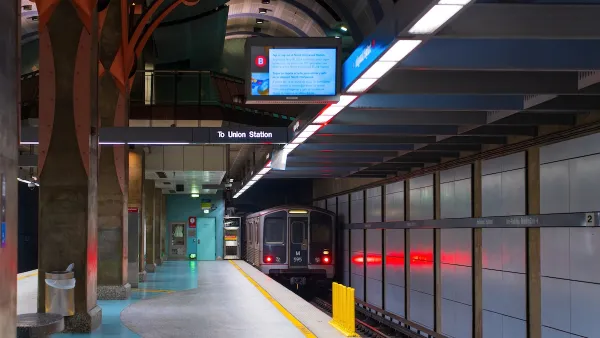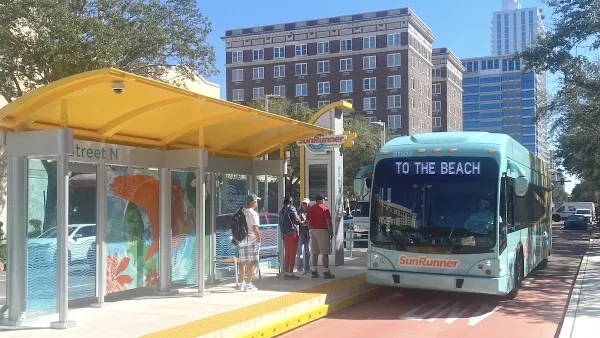A new survey from TransitCenter surveyed 11,846 Americans on their transit use, living environment, upbringing, and personal characteristics.
As reported on by Payton Chung earlier this week in Streetsblog USA, the new "survey found that Americans’ feelings towards transit and cities vary considerably by age, personal values, and whether transit provides a feasible travel option in their neighborhoods. Factors that don’t have much of an effect on transit use include having children at home, education level, having very high incomes, and the region of the country people inhabit."
Seconding previous research, the TransitCenter survey found that factors like living in transit-rich environments, and being employed or in school influence the likelihood of transit ridership, among other things. In addition, the TransitCenter survey found that transit riders "are likely to have grown up in neighborhoods with convenient transit, to be open to new things and experiences, and to want to remain productive while traveling. These motivations are almost as strong as more basic motivations, like relying on transit because no other options are available."
Moreover, the survey found that riders did not differentiate between bus, commuter train, or rail lines when making their mode decision. As Chung wrote, "it’s how people view the urban environment, more than the transportation mode itself, that leads them to ride transit or drive cars."
FULL STORY: Why Transit Agencies Should Woo “Bohemian Boomers” and “Metro Moms”

Planetizen Federal Action Tracker
A weekly monitor of how Trump’s orders and actions are impacting planners and planning in America.

Restaurant Patios Were a Pandemic Win — Why Were They so Hard to Keep?
Social distancing requirements and changes in travel patterns prompted cities to pilot new uses for street and sidewalk space. Then it got complicated.

Map: Where Senate Republicans Want to Sell Your Public Lands
For public land advocates, the Senate Republicans’ proposal to sell millions of acres of public land in the West is “the biggest fight of their careers.”

Maui's Vacation Rental Debate Turns Ugly
Verbal attacks, misinformation campaigns and fistfights plague a high-stakes debate to convert thousands of vacation rentals into long-term housing.

San Francisco Suspends Traffic Calming Amidst Record Deaths
Citing “a challenging fiscal landscape,” the city will cease the program on the heels of 42 traffic deaths, including 24 pedestrians.

California Homeless Arrests, Citations Spike After Ruling
An investigation reveals that anti-homeless actions increased up to 500% after Grants Pass v. Johnson — even in cities claiming no policy change.
Urban Design for Planners 1: Software Tools
This six-course series explores essential urban design concepts using open source software and equips planners with the tools they need to participate fully in the urban design process.
Planning for Universal Design
Learn the tools for implementing Universal Design in planning regulations.
Heyer Gruel & Associates PA
JM Goldson LLC
Custer County Colorado
City of Camden Redevelopment Agency
City of Astoria
Transportation Research & Education Center (TREC) at Portland State University
Camden Redevelopment Agency
City of Claremont
Municipality of Princeton (NJ)





























